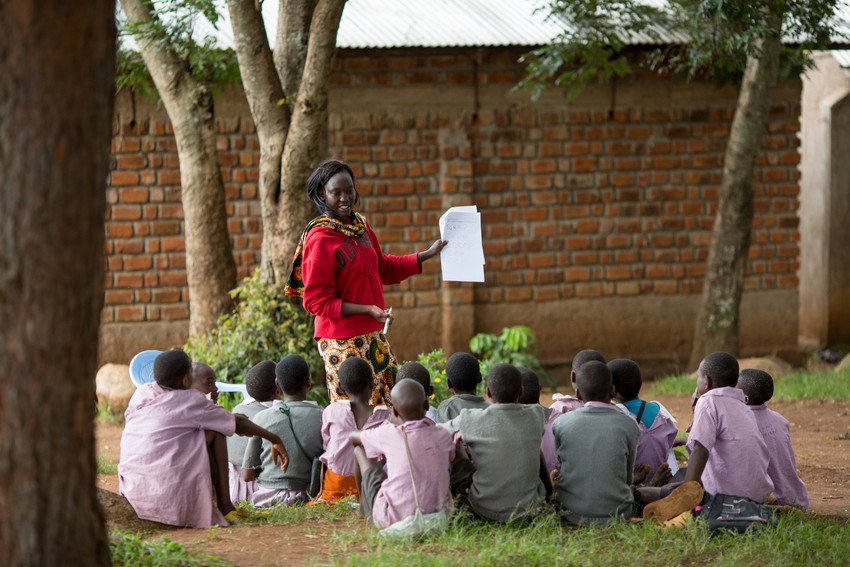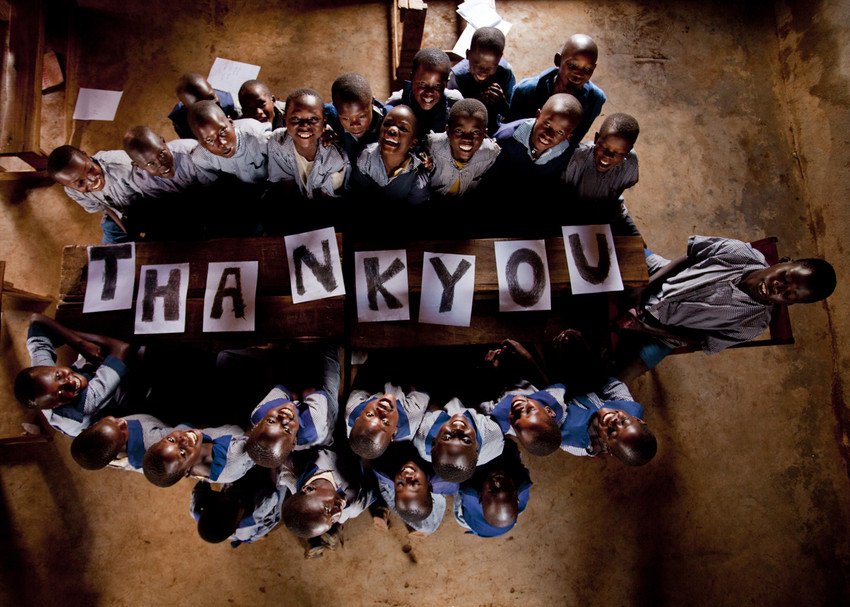After five years of lessons taught and of students impacted, Nuru Kenya Education is ending its outreach program to transition to a new program model that better supports long-term sustainability. The end of the 2016 school year in Kenya signals an end and a new beginning.
If you’re an education practitioner, or if you’ve been following Nuru Education for some time, I invite you to read a reflection of our success and challenges and help us recognize important individuals who helped us get where we are today.
Reflection on Outreach
Back in 2010, former Education Senior Program Manager Lindsey Kneuven and the Nuru Kenya Education team decided to take a step back from the previous education initiatives tried in the beginning of Nuru and conduct research on what would be most impactful. The research by Education Program founders Victoria Tissian, Moses Merengo, Sabora Chacha, Munsi John and others laid the foundation for the launch of Nuru’s outreach program in 2011 and the first full year in 2012. This group took best practices from organizations like Room to Read, Escuela Nueva and Pratham among others to create a program that would help children learn to read in English, the language of instruction in Kenyan public schools.
Over the last five years, the outreach program has been able to engage children in fun and interactive activities and make learning to read fun. The hard work of George Nyamweya made a set of lessons that complemented the Kenyan curriculum and focused on improving reading skills and not just teaching content. Teachers have seen the benefits in learner achievement and student-teacher interaction in their classrooms. Most importantly, we’ve seen impact with increases in fluency and comprehension rates of students in Nuru outreach schools.
The passion and dedication the members of the Nuru Kenya Education team in working to make this program the best that it could be cannot be emphasized enough.
Looking Towards the Future
As successful as the outreach program was, there were challenges. Until 2016, every year of the outreach program experienced some time where children could not attend school due to teacher strikes in Kenya. These were valuable days and weeks when children were out of school and Nuru facilitators could not help them. While teachers in the schools valued and saw the benefits of the outreach program, they were reluctant to come and watch or be a part of the lessons, often taking the time Nuru facilitators worked with their class as a break time. Nuru facilitators were able to make a difference in the one-hour a week they worked with students, but they saw it was not enough. Ultimately, to continue to see gains, Nuru teachers would need to be at the schools indefinitely or sustainability would be in question.
At the same time the outreach program team was discussing how to innovate past these challenges, Nuru Kenya was starting to follow Nuru Ethiopia’s lead by forming cooperatives with its farmers. In addition, Nuru Ethiopia Education had just partnered with Save the Children to implement the Literacy Boost model in its farmer areas. Nuru Kenya Education began to see the benefits of this new model through experience sharing from the Ethiopia team and further research into the model:
- Teacher training would help to train the teachers on the techniques that Nuru Kenya facilitators had been using all of these years.
- Establishing book banks and reading camps at cooperatives would give children chances to practice reading outside of school during school breaks and even teacher strikes.
- Materials for school libraries would give children opportunities to practice reading other materials than their textbooks.
After much deliberation and planning, Nuru Kenya chose to follow in Nuru Ethiopia’s footsteps and launch this new model in 2017. The hope is that ownership and leadership over the activities Nuru introduces will be taken on by the teachers and community members so that Nuru Kenya’s Education Program can be even more impactful and sustainable long-term. As in Ethiopia, we will conduct yearly progress assessments on the literacy levels of children as well as weekly and monthly monitoring of program activities such as teacher training and book banks to evaluate their effectiveness and how the local leaders are taking responsibility for these activities.
To all those who supported and made the outreach program a success, “Thank You!” The program may be changing, but the goal of helping children learn to read remains the same in 2017. We’re excited to see the new model roll out and continue the progress made by the outreach program starting with administrator training and book bank establishment in the first few months of 2017.



